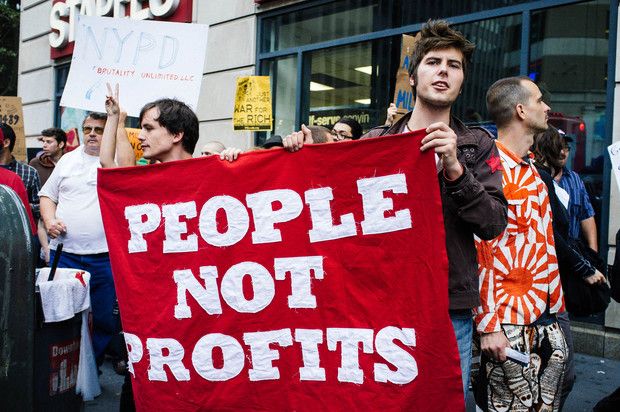The Effect of Covid-19 on Economic Inequality

Today, the magnitude of the economic inequality present in the United States is no secret. Since the year 1980, the top 1% of households in the nation have doubled their portion of the nation's wealth (1). The incomes of most workers have stagnated at the same time that shareholder profits have soared (2). Once the nation’s economic majority, the American middle-class has seen its standard income decline for four consecutive decades (3). There is not one monocausal explanation for the rise in economic inequality our nation has experienced. Some of the factors that have contributed to this rise are “globalization, rising market power and decreased antitrust enforcement, the decline in the number of workers covered by a collective bargaining agreement, financialization and the rising proportion of national income earned by the financial sector, and fissuring of the workplace” (4). In any case, the result is a country in which economic (and thus political) power is skewed heavily towards the ‘haves,’ leaving behind millions of discontented ‘have-nots.’
America’s soaring economic inequality carries significant implications for the country’s social and political cohesion. Scholars have noted the myriad of potential risks that untamed inequality poses to seemingly stable democracies, many of which have already come to fruition across the globe. For instance, economic inequality can breed fertile ground for nativist and authoritarian regimes — that claim they recognize and will remedy the economic discontent of the populace — to come to power (5). The United Nation’s Department of Economic and Social Affairs has also noted that high inequality can erode trust in democratic institutions and society (6). In the social sphere, social scientists have argued that the decline of the middle class in several developed countries has created a sense of "social separatism" and "eroded broad-based support for public services'' (7). High levels of inequality pose a risk for the wealthy as well.
Given these pre-existing inequalities, it is worth discussing how the Covid-19 pandemic has affected economic inequality. An analysis of the Covid-19 pandemic reveals that the crisis has accelerated the growth of economic inequality in the United States. The combined wealth of America's billionaires increased by 39% between March 18, 2020 and January 18, 2021 (8). On the flip side, the country’s poorest workers have experienced the highest job loss rate (9). This has occurred despite the fact that lower-paid workers—who are disproportionately women and people of color—are concentrated in essential services like cleaning, nursing, teaching, etc. In contrast, many higher-paid workers have been able to work from home during the pandemic and have seen their rate of unemployment and wages already return to pre-pandemic levels (10).
On a more macro level, the Covid-19 pandemic has accelerated the "digital transformation of production, commerce, and work" (11). More technologically advanced firms have been able to increase their market share, while automation and telework continue to turn labor markets against low-wage workers (12). Low-wage industries (especially those reliant on human contact) and small businesses have especially been squeezed.
What can be done to curtail this rampant economic inequality? The most assured policies are ones that have been recommended for some time—things like implementing a "robust social safety nets, an active redistribution of wealth and the protection of workers rights" (13). Policies should emphasize not only redistribution but 'predistribution'—harnessing the potential of technological transformation to foster more inclusive economic growth). This might encompass things like investment in education and training programs, as ‘democratizing’ the innovation system (14). The multi-trillion dollar civil rights and anti-poverty initiatives that President Biden has instituted will help tame some of our inequality, but much more remains to be done. This pandemic has shown the depths of economic inequality in our country and should challenge us to take action to combat it.
Works Cited
7.https://academic.oup.com/wber/article-abstract/30/2/203/2224294?redirectedFrom=fulltext
8.https://inequality.org/facts/inequality-and-covid-19/
9.https://inequality.org/facts/inequality-and-covid-19/
10.https://www.weforum.org/agenda/2020/10/covid-19-is-increasing-multiple-kinds-of-ineq



